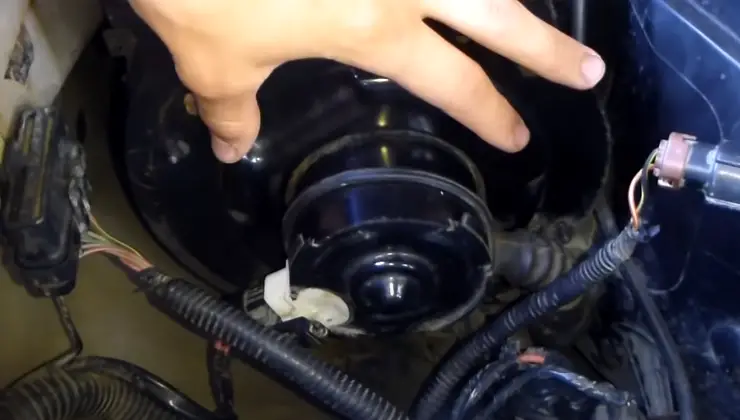Have you ever faced the problem of your car’s blower motor and resistor not working, even after replacing them? This issue can be frustrating and leave you clueless about the cause and solution. In this article, we will explore the possible causes of replaced blower motor and resistor still not working issue and offer solutions to help you fix it.
Contents
What are Blower Motor and Resistor?
A blower motor is a crucial component in the heating and cooling system of a vehicle. It is responsible for pushing air through the vents into the cabin, allowing for a comfortable temperature. On the other hand, a resistor regulates the blower motor’s speed, ensuring that the air flows at the desired level.
Causes of a Replaced Blower Motor and Resistor Not Working
Here are some common causes of the issue –
Electrical Issues
One of the most common reasons why a replaced blower motor and resistor might not work is due to electrical issues. If the wiring or electrical connections are damaged, it can prevent the blower motor and resistor from functioning correctly.
Defective Blower Motor
Another reason why a replaced blower motor and resistor might not work is if the blower motor itself is defective. Even if you replace the resistor, the faulty blower motor will not respond to it.
Defective Resistor
Similarly, a defective resistor can cause the blower motor to stop working. If you have replaced the blower motor but still face the same issue, it could be due to a faulty resistor.
Fuse Issues
A blown fuse can also be the cause of a replaced blower motor and resistor not working. The fuse might blow due to overheating or a short circuit, preventing the blower motor and resistor from functioning correctly.
Control Module Problems
If your car has a control module, it could be the cause of the problem. The control module controls the blower motor’s speed, and if it’s faulty, it can prevent the blower motor and resistor from working.
How to Fix Replaced Blower Motor and Resistor Still Not Working issue?
Here is step by step guide to fix the problem.
Check Electrical Connections
If you suspect that electrical issues are causing the problem, check all electrical connections and wires for any damage. Repair or replace any damaged wires, and check the connections to ensure they are secure.
Replace the Blower Motor
If the blower motor is faulty, you need to replace it. Ensure that you purchase a high-quality motor that’s compatible with your vehicle.
Replace the Resistor
Similarly, if the resistor is defective, you need to replace it. Ensure that you purchase the correct resistor that’s compatible with your car model.
Check Fuses
Check the fuses related to the blower motor and resistor. If any are blown, replace them with the correct amp rating fuse.
Replace the Control Module
If the control module is causing the problem, replace it. Ensure that you purchase a module that’s compatible with your car’s make and model.
Frequently Asked Questions
Here is some FAQs about replacing blower motor –
Q: Why did my blower motor stop working?
A: The blower motor can stop working due to various reasons, including electrical issues, a defective motor, blown fuse, or control module problems.
Q: How do I know if my blower motor is defective?
A: A defective blower motor may make unusual noises, emit foul odors, or stop functioning altogether.
Q: How do I check the electrical connections?
A: You can use a multimeter to check the continuity of wires and connections.
Q: Can a bad blower motor damage the resistor?
A: Yes, a bad blower motor can damage the resistor by drawing too much current and causing it to overheat.
Q: How often should I replace the blower motor and resistor?
A: The lifespan of a blower motor and resistor depends on several factors, including the frequency of use and the car’s maintenance. It’s recommended to replace them every five to seven years or as per your car manufacturer’s guidelines.
Q: Can a dirty air filter affect the blower motor and resistor’s performance?
A: Yes, a dirty air filter can restrict airflow, causing the blower motor and resistor to work harder and potentially overheat.
Q: Can a faulty blower motor or resistor cause other car problems?
A: Yes, a faulty blower motor or resistor can cause other issues, such as reduced fuel efficiency, decreased engine performance, and even engine overheating.
Q: Can a blown fuse cause the blower motor and resistor to stop working?
A: Yes, a blown fuse can prevent the blower motor and resistor from functioning correctly. Always check the fuses related to the heating and cooling system before replacing any components.
Conclusion
Replaced blower motor and resistor still not working problem is common, and it’s not impossible to fix. Electrical issues, defective blower motor or resistor, fuse issues, and control module problems are some of the most common causes. By understanding the possible causes and solutions, you can fix the problem and ensure your car’s heating and cooling system is working correctly.
